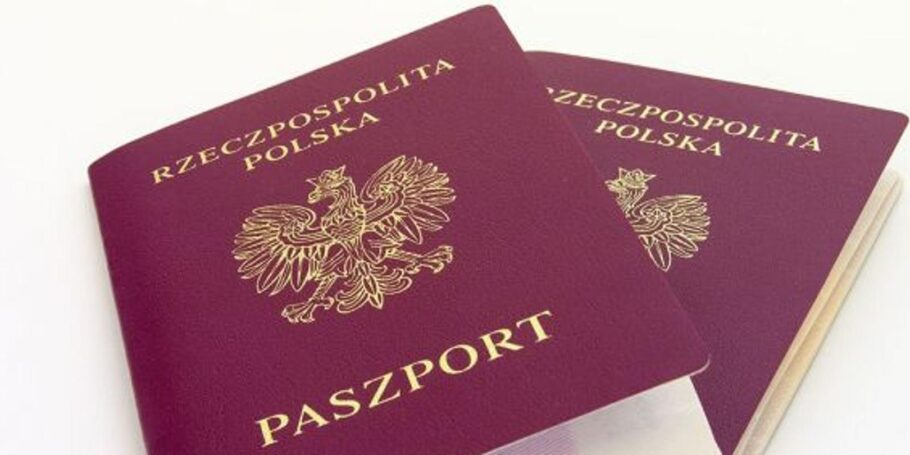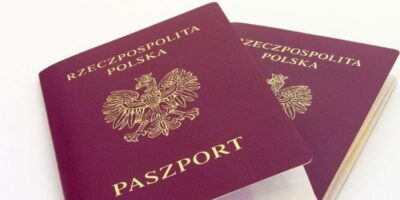How to Obtain Polish Citizenship?
Private clients / 11 September 2025

In recent years, there has been a noticeable rise in the number of people seeking Polish citizenship. This trend has both a legal and a social dimension. Applications for the granting or confirmation of Polish citizenship are submitted not only by those who have lived in Poland for many years and wish to firmly establish their bond with the country, but also by individuals rediscovering their Polish roots and seeking to give them tangible expression. Motivations vary widely – from personal reasons, such as marriage to a Polish citizen, to professional ones, connected with labour migration and the decision to settle permanently in Poland.
The queue for a Polish passport
Every year thousands of foreigners apply for a Polish passport, and the number of positive decisions is steadily increasing. The popularity of Polish citizenship stems from many sources. On the one hand, Poland is increasingly seen as a stable and economically attractive country that offers good prospects for professional and personal development. On the other hand, for many people obtaining Polish citizenship is a way of returning to family traditions and symbolically closing an important chapter in their history.
Four paths to citizenship
According to the Act of 2 April 2009 on Polish citizenship, there are four main ways of obtaining this status:
- acquisition of citizenship by operation of law (for example through birth or repatriation)
- granting of citizenship by the President of the Republic of Poland
- recognition as a Polish citizen by the provincial governor
- restoration of citizenship by the Minister of Internal Affairs.
Each of these routes has its own character and specific Polish citizenship requirements to be met.
Citizenship by operation of law – descent and repatriation
The most natural way of acquiring citizenship is so-called “citizenship by operation of law.” This applies primarily to children born to parents who are Polish citizens, but also – in certain specific cases – to children born in Poland, for example when their parents are stateless.
A special category is repatriation, which allows people of Polish origin from the territories of the former Soviet Union to return to Poland. Upon arrival on the basis of a special national visa, such individuals automatically become Polish citizens.
Granting of citizenship by the President
A foreigner may also obtain citizenship by way of a decision of the President of the Republic of Poland. The application is submitted by the individual concerned, and in the case of minors – by their legal representative. It may be filed in person or through the provincial governor or consul.
The application must include not only basic personal data, but also information about parents and relatives, previous possession or loss of Polish citizenship, sources of income, professional and social achievements, knowledge of the Polish language, and details about the spouse.
The application is then forwarded to the Minister of Internal Affairs, who seeks opinions from relevant authorities such as the Police or the Internal Security Agency and prepares a recommendation for the President. The decision of the President is final and discretionary. It is worth noting that the President may, at any stage, take over the matter and grant citizenship while bypassing some of the procedures.
Recognition as a Polish citizen
Another path is recognition as a Polish citizen, a decision made by the provincial governor. This procedure applies above all to foreigners who have lived in Poland for several years, have a stable source of income, and hold a legal title to occupy residential premises. Certain facilitations exist for spouses of Polish citizens, stateless persons, and individuals who have been granted refugee status in Poland.
A necessary condition is knowledge of the Polish language at least at level B1, confirmed by a certificate or completion of education in Polish. Before issuing a decision, the provincial governor consults the Police and the Internal Security Agency to verify whether the acquisition of citizenship by the applicant poses any risk to state security.
Restoration of citizenship
The complex history of Poland means that many people lost their citizenship – due to war, emigration, or decisions of the authorities during the period of the Polish People’s Republic. The law now allows such individuals to apply for restoration of citizenship.
The application is examined by the Minister of Internal Affairs. However, restoration is not possible if the applicant in the past acted to the detriment of Poland – for example by serving in the structures of the Axis powers during the Second World War, participating in human rights violations, or voluntarily joining foreign armies.
The path to citizenship – a maze of procedures or a gateway to belonging?
There is no doubt that the procedures for obtaining Polish citizenship are demanding and require diligence and patience. Different authorities are involved – the President, the provincial governor, the Minister of Internal Affairs – and each path requires the participation of state security services. Applicants must also provide detailed information about their personal and professional lives and demonstrate knowledge of the Polish language.
It may seem, at first glance, like a complex maze of formalities. Yet these procedures serve an important purpose: they are meant to ensure that citizenship is granted to those who are genuinely connected with Poland and ready to participate fully in the country’s social, economic, and cultural life. How long does it take to obtain Polish citizenship? The process can be long and demanding, but it is entirely achievable, and reaching the goal often marks the start of a new chapter in the applicant’s life.
Author
Tomasz Piejak
adwokat
Od paru ładnych lat zajmuję się podatkami, sprawami rodzinnymi i spadkowymi, a także tworzeniem, bieżącą obsługą i restrukturyzacją podmiotów prawnych. Realizację we wszystkich tyc...
Powiązane wpisy
Inheritance and gift tax – continued deregulation. 2025 amendment of the Polish law
Inheritance and gift tax – continued deregulation. 2025 amendment of the Polish lawTaxation of the sale of an inherited art collection
Taxation of the sale of an inherited art collectionPolish Citizenship Act: changes in light of draft amendments (tax residence and the "four pillars"). It may not be easier…
Polish Citizenship Act: changes in light of draft amendments (tax residence and the "four pillars"). It may not be easier…Family Foundations Under the Tax Authorities’ Eye: New Rules from 2026
Family Foundations Under the Tax Authorities’ Eye: New Rules from 2026Obawiasz się,
że ominą Cię
najważniejsze zmiany
w prawie?





